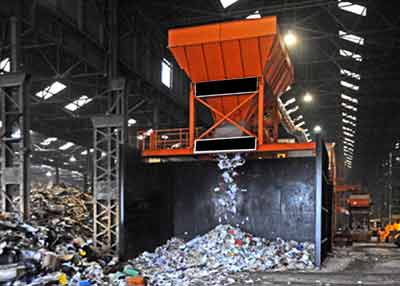EPA calls for urgent action to address Ireland’s rising waste volumes and falling recycling rates.

- Waste generation in Ireland increased significantly in 2019.
- Municipal waste increased by 6% to 3.1 million tonnes,
- packaging waste increased by 11% to 1.1 million tonnes,
- hazardous waste increased by 10% to 0.6 million tonnes and
- construction waste increased by 2.6 million tonnes to 8.8 million tonnes.
- Ireland’s recycling rates for municipal waste and packaging waste have declined, with more waste being sent for energy recovery. Ireland faces a widening gap to meet ambitious new EU recycling targets from 2025 onwards.
- To address Ireland’s rising waste volumes and falling recycling rates, we need to transform existing business models into circular ones, that promote waste reduction, reuse and recycling. Circularity roadmaps are needed for key economic sectors, including the construction, manufacturing and food processing sectors, supported by clear policy, legislation, and national targets.
Waste generation in Ireland continues to rise while recycling rates are falling, according to the Environmental Protection Agency’s (EPA) National Waste Statistics Summary Report for 2019, which publishes the most recent official data on waste generation and management in Ireland. The report reveals some worrying trends.
Waste generation in Ireland increased significantly in 2019. Municipal waste increased by 6% to 3.1 million tonnes, packaging waste increased by 11% to 1.1 million tonnes and hazardous waste increased by 10% to 0.6 million tonnes.
Ms Sharon Finegan, (Director of the EPA’s Office of Environmental Sustainability), said,
“A circular economy is one that is based on less waste and more reuse of materials; these trends show Ireland is going in the wrong direction. Our rising levels of waste are unsustainable and need to stop. Systemic change is needed across all economic sectors to shift the focus to designing out waste and promoting reuse and recycling.”
The past decade in Ireland has seen dramatic changes in waste management. Only 15% of municipal waste was landfilled in 2019, compared with 61% a decade earlier. There has been a significant increase in the share of municipal waste sent for incineration with energy recovery over the same period, from 4% in 2009 to 46% in 2019.
Ireland’s recycling rates for municipal and packaging waste have been in gradual decline for a number years, as efforts to improve recycling have been outstripped by the growth in waste being generated and the amount being sent for energy recovery.
Our recycling rate for municipal waste has fallen from 41% in 2016 to 37% in 2019, while the recycling rate for packaging waste has declined from 70% in 2013 to 62% in 2019. The trends show that Ireland is facing a widening gap to meet ambitious new EU recycling targets from 2025 onwards.
Commenting on the trends, Dr Tara Higgins, (EPA Senior Scientist) said,
“Ireland’s declining recycling rates are a significant cause for concern. Recent moves to allow soft plastics such as films and wraps into our recycling bins, continued expansion of brown bin services to households, new requirements for all packaging to be reusable or recyclable by 2030 and a levy on waste recovery are among the suite of measures needed to increase recycling and close the gap to new EU recycling targets”.
Ireland also continues to have some significant waste infrastructure deficits and relies on export for a number of key waste streams, including municipal, packaging and hazardous waste. These trends point to the need for expansion of Ireland’s waste treatment and recycling capacity in order to extract the maximum value from waste materials here in Ireland and reduce the emissions associated with transporting waste over long distances.

Leave a Reply